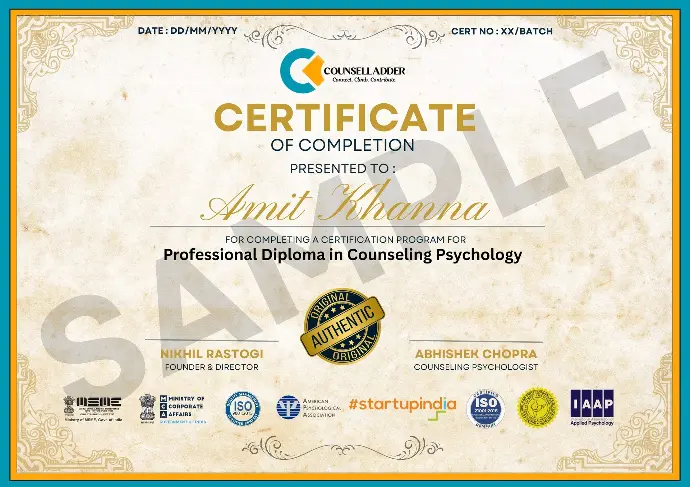First Aid in Counseling Psychology
First Aid in Counseling Psychology focuses on equipping individuals with immediate, short-term psychological support skills for those experiencing emotional distress, trauma, or crisis. This foundational module teaches you how to actively listen, create a safe space, assess risk, and offer empathetic, non-judgmental responses. It is ideal for educators, HR professionals, aspiring counselors, and anyone working closely with people. The course emphasizes ethical boundaries, self-care for helpers, and when to refer for advanced mental health care. Learn to be a calm, compassionate presence in difficult moments — and be someone’s first line of psychological support when it matters most.
Program Duration
3 Months
Eligibility
12th Pass
Modules Covered
3+ Modules
Session & Hours Details
20+ Sessions + 30 Hours
Who All Can Join?
Refer Brochure
CL Certificate

Upon successful completion of the course, you will receive a recognized certificate from CounselLadder, validating your skills and expertise in the field.
Letter Of Recommendation

Upon successful completion of the course, you will be eligible to receive a Letter of Recommendation from CounselLadder, endorsing your expertise and professional capabilities in the field.
3
Months
3
Core Module
5
Core Topics
24
Live Sessions
Course Curriculum
(a) Learn the principles of safety, calm, and resilience in crisis care.
(b) Understand how trauma impacts individuals across ages and cultures.
(c) Build essential skills in empathy, listening, and rapid support.
(a) Explore approaches to engaging individuals in distress.
(b) Understand how to assess needs, risks, and immediate priorities.
(c) Learn supportive interventions that connect people with resources.
(a) Apply skills in diverse settings such as schools, workplaces, and communities.
(b) Recognize provider stress, burnout, and strategies for self-care.
(c) Integrate cultural sensitivity and ethical practice into real-world scenarios.
